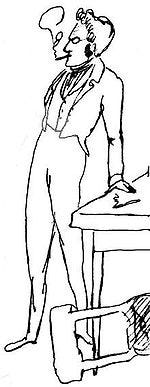On Stirner
the ego is the way
God is love. Love is what is human in man and what is inhuman is the loveless egoist. - Stirner
What is one of the major issues with a secular society? That every enthusiasm is a religion. See CrossFit, Crypto, Yoga, Meditation…
So who was Max Stirner? In short, he was an Egoist, which means that he considered self-interest to be the root cause of an ind…



